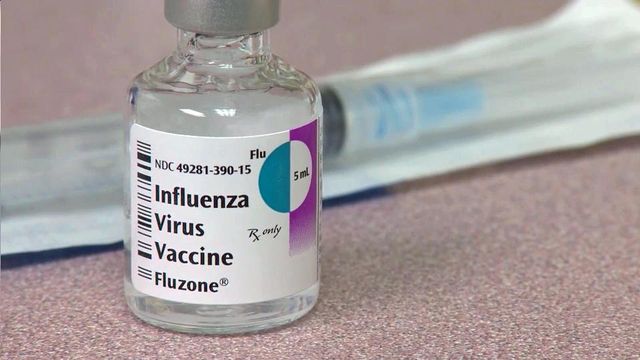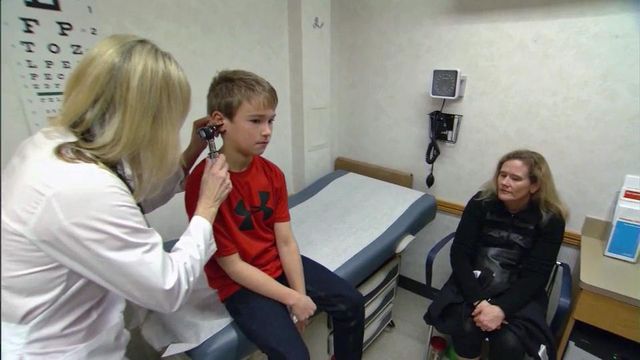State officials warn of spike in flu cases
Doctors with the North Carolina Department of Health and Human Services said Tuesday that they've seen a spike in flu-related activity since the middle of December.
Posted — UpdatedBecause of the increase, officials said they expect the number of flu-related deaths to continue to climb as flu season reaches its annual peak.
In all, 17 people have died in North Carolina of the flu this season, which began in October. Nine of those deaths were reported during the week of Christmas.
The next release of flu-related numbers will be Thursday.
"Historically, the flu season peaks in late January and early February. In the last three years, we've seen earlier peaks," Megan Davies, the state's chief epidemiologist, said in a news conference. "In terms of intensity, the flu activity has been more intense as measured by visits to emergency departments."
One reason for the spike, officials said, is that a specific strain of flu – H3N2, a type of Influenza A – is not well-matched to the flu vaccine for this season. Despite that, officials still recommend the flu vaccine for those who have not received it.
"Flu vaccine protects against three of four strains of the flu, depending on which one you received," Davies said. "We still think it's very important to get the flu vaccine. It can still protect many people and prevent hospitalizations and deaths."
Of the 17 deaths reported in North Carolina so far, officials had vaccination data on 11 of them. Five of those 11 people had been vaccinated, and six had not.
The flu is now widespread in all but seven states, and hospitalization rates match the dismal season two years ago. While health officials fear this will be an unusually bad year, it's too soon to tell.
The latest figures released Monday by the Centers for Disease Control and Prevention show the flu hitting hard in most of the 43 states where the illness was widespread. But the flu was not yet rampant in populous states such as California and New York.
Zack Moore, an epidemiologist with DHHS, said it's hard to say whether the peak of the flu season coming early will have any impact on its overall intensity or length. He also said it's not abnormal to see flu-related activity peak first in the southeastern portion of the United States.
"When flu seasons begins earlier, the widespread flu activity normally lasts about three months," he said. "The intensity is different every year. This year does seem to be more intense and widespread. We wouldn't call North Carolina unique to neighboring states in terms of cases or deaths."
Many hospitals and community clinics across the state have restrictions in place to keep people under 18 and those with flu symptoms – high fever, body aches and chills, cough or sore throat and a runny or stuffy nose – from visiting patient areas. Beginning Friday, WakeMed will restrict patient visitations. No visitors under the age of 12 or visitors who are experiencing fever, diarrhea, cold or flu-like symptoms will be permitted in patient-care areas.
Moore said it's also important to track symptoms for school-aged children.
"Children with fever should not be going to school. If your child has a fever, they should stay home and be kept home until they've been without fever for 24 hours without taking any medicine," he said. "Unfortunately, it's not practical to keep every child with a runny nose home from school. Parents have to use discretion."
Kelly Creech, the director of health services for Wake County Schools, said the school system is expecting an increase in the number of students who are absent due to the spike in flu-related activity.
"We always work toward prevention. That's one of the things we focus most on," Creech said. "We encourage parents to use their discretion for keeping their kids home. If they have a temperature over 100 we would like them to stay home. It's hard for a child to function with a fever."
Leanna King, who has a second-grader and two fourth-graders at A.B. Combs Elementary School, said all of her children were vaccinated.
"It's definitely going around. A lot of kids have missed school because of it, and I kind of promote the hand-washing, no-hugging air shakes," she said. "It's kind of the luck of the draw, a couple of years ago it was the same thing."
• Credits
Copyright 2024 by Capitol Broadcasting Company. All rights reserved. This material may not be published, broadcast, rewritten or redistributed.






